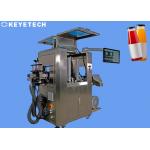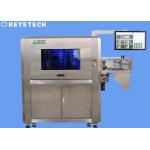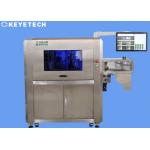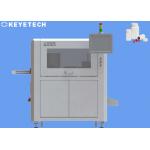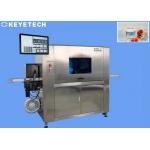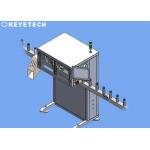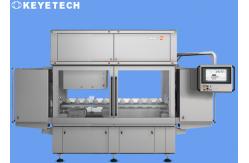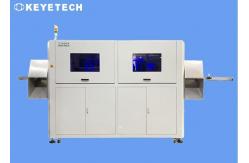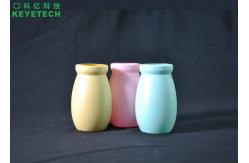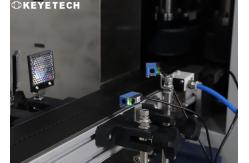Detection principle
The product is stably ordered to a specific station through the
transfer device, and then the high-pixel sample image taken by the
industrial camera is transferred to the image processing software,
and the standard sample is compared and analyzed to determine the
good product and the defective product, and control the
corresponding pneumatic to remove the defective products and
finally collect the qualified products.
The software will open the sample comparison standard, and the
production personnel on the customer site can control the
comparison accuracy and choose the accuracy standard most suitable
for their own production conditions, thereby controlling the
product defect rate.
Detecting details
Our design plan adopts 11 sets of high-pixel industrial cameras and
high-performance stroboscopic light sources to carry out a full
range of visual detection for the appearance defects of the bottle
body. The detection speed is 120 pieces per minute. The equipment
can realize 7*24 hours of operation, and the unqualified products
can be automatically rejected online.
The whole set of detecting equipment includes mechanical parts,
visual electronic hardware and detecting system software. The
entrance and exit of the detecting machine can be integrated with
the on-site conveyor line (see the design drawings for details),
and can be connected to the upstream and downstream production
equipment according to the specific production needs of the
customer. | System operating parameters | | Dimensions | See the design drawings
for details | Power and frequency | 220V 20A 50HZ | | Total power | 5.0~6.0 kw | Air pressure | 0.5~0.8MPa Purify and oil-free | | Working temperature | -20℃ ~ 60℃ | Working humidity | Below 50% relative humidity |
Inspection procedure
Detection standard | Model | Camera number | Detection range | Detection content and accuracy | Detection precision | Speed |
KVIS- SC11 |
1 set |
Bottle mouth | Black spots, stains (different colors) ≧0.2mm | 99% |
120 pcs/min | | Lack of material on cup mouth,overlap≧0.5mm | 99% |
1 set |
Outer bottom part of the bottle | Black spots, stains (different colors) ≧0.2mm | 99% | Penetrating hole (no adhesion in the hole)≧0.5mm | 99% |
1 set |
Inner bottom part of the bottle | Black spots, stains (different colors) ≧0.2mm | 99% | Obviously uneven thickness
(The difference in gray value of local color difference is greater
than 40 or more) | 99% | | Injection point offset≧±0.5mm | 99% | Bottle inner
bottom accumulation of material≧0.5mm | 99% |
4 set point light source |
Bottle mouth outer side part | Uneven bottle mouth
Depth≧0.5mm,length≧1.0mm | 99% | The bottle mouth and lifting ring are crushed
Depth≧0.5mm, length≧1.0mm | 99% | lifting ring dimple, lack of material
Depth≧0.5mm, length≧1.0mm | 99% | Dimples in the inner wall of the bottle mouth
Depth≧0.5mm, length≧1.0mm | 99% | 4set
Integral cavity + point light source |
Bottle outer side part | Black spots, stains (different colors) ≧0.2mm | 99% | | Obviously uneven thickness (including over material on parting
line) (The difference in gray value of local color difference is
greater than 40 or more) | 99% |
System composition
(1) Mechanical part:The mechanical part is the core component of
the system, which carries all the transmission devices and
electronic hardware (industrial cameras,Light source, industrial
computer, touch screen, electrical box, etc.).
The conveyor belt adopts a vacuum adsorption belt to adsorb and fix
the sample on the surface of the belt without sliding, so that the
picture can be accurately taken.
(2) Hardware part:The hardware part includes camera, lens, light
source, high-speed air valve, computer, touch screen and other
electrical equipment. Machining process |
